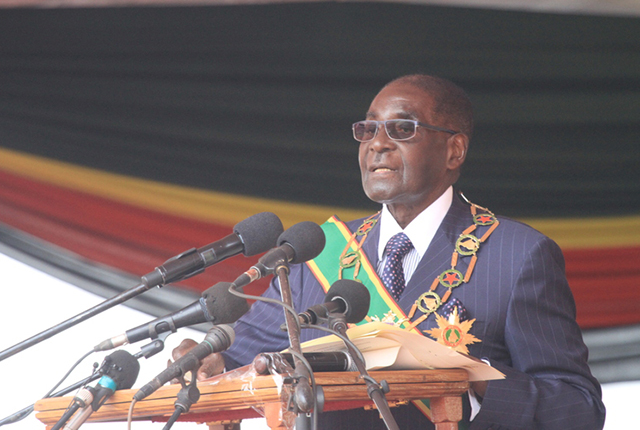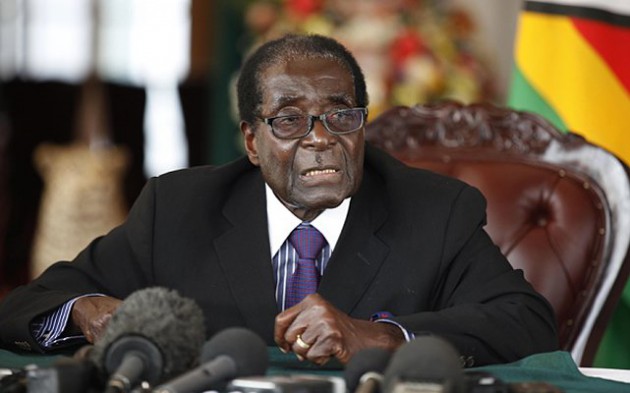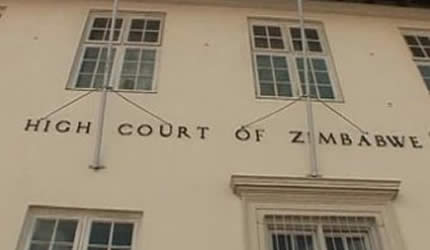President consulted before rejecting Bill: Katsande


President Mugabe
Zvamaida Murwira Senior Reporter
President Mugabe’s decision to throw back to Parliament the Special Economic Zones Bill was made after a consensus was reached among the Tripartite Negotiating Forum which requested the August House to consider crafting guidelines governing conditions of service for workers in the zones as opposed to a blanket suspension of the Labour Act, it has emerged.
The Head of State and Government and Commander-in-Chief of the Zimbabwe Defence Forces recently threw back to Parliament the Special Economic Zones Bill after he expressed reservations on a clause that seeks to suspend the Labour Act whose effect would have exposed workers to serious abuse by employers.
In rejecting the Bill, President Mugabe cited section 56 of the legal provision which, he said was not consistent with section 65 of the Constitution as it sought to suspend operations of the labour laws in special economic zones.
Deputy Chief Secretary in the Office of the President and Cabinet Retired Colonel Christian Katsande said President Mugabe had received representations from various stakeholders on the Bill and upheld the concerns.
“His Excellency, therefore received representations from the Ministry of Macro Economic Planning and Investment Promotion to the effect that the explicit ousting of the application of the Labour Act (Chapter 28:01) in relation to licensed investors in a Special Economic Zones would imply wanton casualisation of labour and increased workers vulnerability,” said Rtd Col Katsande while addressing Zanu-PF caucus on Tuesday.
“As such, His Excellency is convinced that his reservations will be fully cured as follows (a) deletion of the phrase ‘Labour Act (Chapter 28:01)’ and in section 56 subsection (1) of the Bill so that it reads as follows . . . (2) The Authority must, in consultation with the minister responsible for the administration of the Labour Act provide rules for conditions of service, termination of service, dismissal from service and disciplinary proceedings that apply within every special economic zone.”
The Special Economic Zones Bill was referred back to Parliament in terms of Section 131 (6) (b) of the Constitution which allowed the President to express reservations on certain clauses of a Bill.
Rtd Col Katsande said workers’ representations requested Public Service, Labour and Social Welfare Minister Prisca Mupfumira to facilitate a review of the Bill resulting in pursuance of further dialogue involving relevant ministries, employers and workers representatives to find a mutually agreed way forward.
“A Tripartite Labour Advisory Council meeting on the Bill was held on August 30, 2016 and a Tripartite Negotiating Forum principals meeting held on September 1, 2016 considered this issue among others,” said Rtd Col Katsande.
During the tripartite engagement, Government outlined the economic objective of the Bill which is to attract new investment under flexible labour conditions with workers’ representative stating its objections citing several grounds while employers raised their concerns.
“The tripartite stakeholders, by consensus, thus recommended the deletion of the reference to the Labour Act from section 56 (1) thus removing express ouster of the Labour Act,” said Rtd Col Katsande.
It was eventually agreed that there be amendments to the Bill to ensure that workers in the zones were accorded fundamental rights at work as already provided in the Constitution.
Section 65 (1) of the Constitution provides “Every person has the right to fair and safe labour practices and standards and to be paid a fair and reasonable wage” (4) Every employee is entitled to just, equitable and satisfactory conditions of work.”











Comments